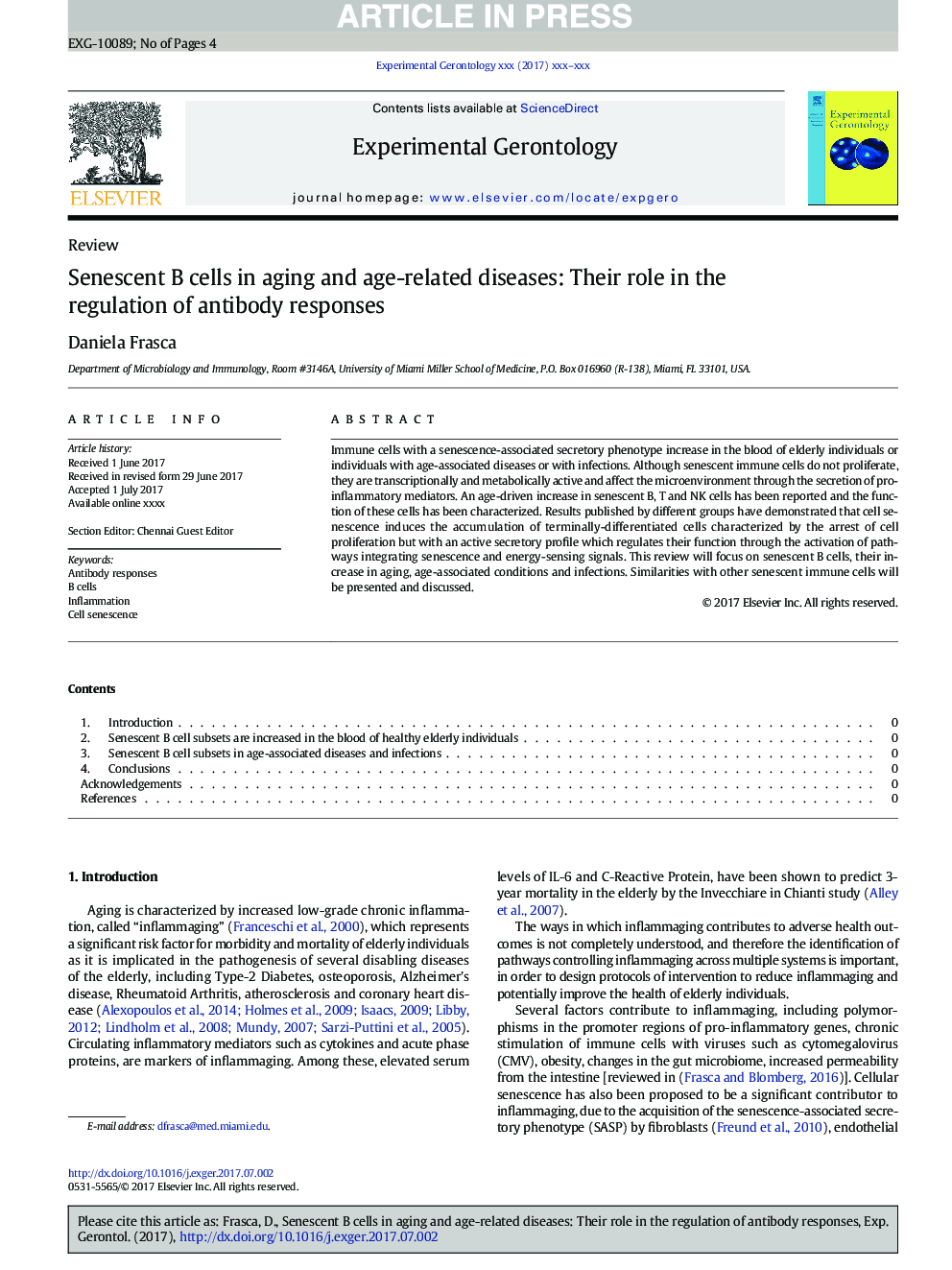| Article ID | Journal | Published Year | Pages | File Type |
|---|---|---|---|---|
| 8262239 | Experimental Gerontology | 2018 | 4 Pages |
Abstract
Immune cells with a senescence-associated secretory phenotype increase in the blood of elderly individuals or individuals with age-associated diseases or with infections. Although senescent immune cells do not proliferate, they are transcriptionally and metabolically active and affect the microenvironment through the secretion of pro-inflammatory mediators. An age-driven increase in senescent B, T and NK cells has been reported and the function of these cells has been characterized. Results published by different groups have demonstrated that cell senescence induces the accumulation of terminally-differentiated cells characterized by the arrest of cell proliferation but with an active secretory profile which regulates their function through the activation of pathways integrating senescence and energy-sensing signals. This review will focus on senescent B cells, their increase in aging, age-associated conditions and infections. Similarities with other senescent immune cells will be presented and discussed.
Related Topics
Life Sciences
Biochemistry, Genetics and Molecular Biology
Ageing
Authors
Daniela Frasca,
